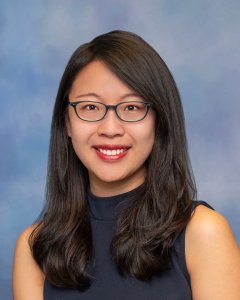Presented By: DCMB Seminar Series
Department of Computational Medicine & Bioinformatics Weekly Seminar
Keynote Speaker: Xinjun Zhang, PhD (Assist. Prof. in Department of Human Genetics)

Talk Title:
The evolutionary history, selection, and machine learning-based detection of archaic introgressed variants
Abstract:
The discovery of Denisovans is one of the most exciting findings in human evolution in the past decade. The striking similarity between sequences of the high-altitude adaptation gene EPAS1 in Denisovans and modern Tibetans suggested adaptive introgression. However, the time and geographic ranges where the adaptive introgression happened remain unknown. This talk consists of three studies that are related to archaic adaptive introgression. First, I show that the ancestors of Tibetans experienced two pulses of Denisovan introgression, and the positive selection on EPAS1 did not start until after the Last Glacial Maximum. Second, I show that most commonly-used statistical methods for detecting adaptive introgression fail to consider a confounder from recessive deleterious mutations on the genome, which can inflate their false positive rates especially in conserved genomic regions with low recombination rates. Lastly, I introduce MaLAdapt – a machine learning method for detecting genome-wide adaptive introgression, which reveals novel knowledge of how genomic variants from archaic humans facilitated modern human adaptations in worldwide populations.
Short Bio:
Dr. Xinjun Zhang is an Assistant Professor in the Department of Human Genetics at the University of Michigan, and an affiliated faculty member at CCMB and the Department of Ecology and Evolutionary Biology. The Zhang Lab focuses on developing computational methods to address a series of questions related to how admixture and other population genetic processes shaped human genetic diversity. Dr. Zhang received her BS in Biology from Beijing Normal University, and PhD in Evolutionary Anthropology from UC Davis. She completed her postdoctoral trainings at UCLA with Dr. Kirk Lohmueller (funded by a NIH K99/R00 Pathway to Independence Award) and at UC Merced with Dr. Emilia Huerta-Sanchez.
The evolutionary history, selection, and machine learning-based detection of archaic introgressed variants
Abstract:
The discovery of Denisovans is one of the most exciting findings in human evolution in the past decade. The striking similarity between sequences of the high-altitude adaptation gene EPAS1 in Denisovans and modern Tibetans suggested adaptive introgression. However, the time and geographic ranges where the adaptive introgression happened remain unknown. This talk consists of three studies that are related to archaic adaptive introgression. First, I show that the ancestors of Tibetans experienced two pulses of Denisovan introgression, and the positive selection on EPAS1 did not start until after the Last Glacial Maximum. Second, I show that most commonly-used statistical methods for detecting adaptive introgression fail to consider a confounder from recessive deleterious mutations on the genome, which can inflate their false positive rates especially in conserved genomic regions with low recombination rates. Lastly, I introduce MaLAdapt – a machine learning method for detecting genome-wide adaptive introgression, which reveals novel knowledge of how genomic variants from archaic humans facilitated modern human adaptations in worldwide populations.
Short Bio:
Dr. Xinjun Zhang is an Assistant Professor in the Department of Human Genetics at the University of Michigan, and an affiliated faculty member at CCMB and the Department of Ecology and Evolutionary Biology. The Zhang Lab focuses on developing computational methods to address a series of questions related to how admixture and other population genetic processes shaped human genetic diversity. Dr. Zhang received her BS in Biology from Beijing Normal University, and PhD in Evolutionary Anthropology from UC Davis. She completed her postdoctoral trainings at UCLA with Dr. Kirk Lohmueller (funded by a NIH K99/R00 Pathway to Independence Award) and at UC Merced with Dr. Emilia Huerta-Sanchez.